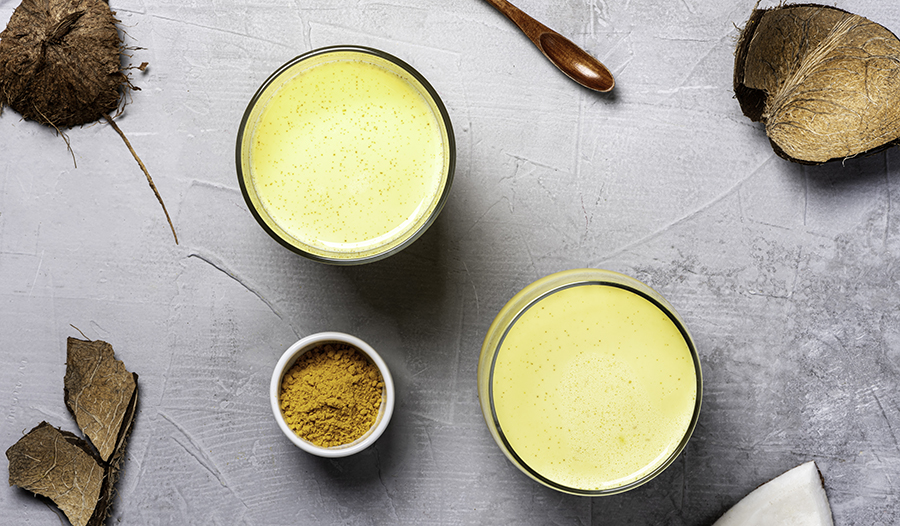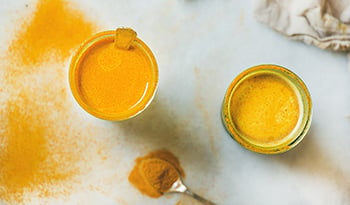Use Turmeric to Boost Your Active Lifestyle
DISCLAIMER:This blog does not intend to provide diagnosis...
- In this article:
- What Is Turmeric?
- Turmeric and Black Pepper
- Health Benefits of Turmeric
- Is Turmeric Safe?

If you looked at every supplement on the market and compared their potential benefits across every aspect of health, you’d be hard-pressed to find many that can stack up to turmeric.
Turmeric is a plant related to ginger that is grown throughout India and other parts of tropical Asia. Long before the supplement industry started marketing turmeric heavily for its proposed benefits, it was used for medicinal purposes throughout most parts of Southern Asia.
Historically, turmeric was used to treat a plethora of health problems such as extreme pain, troubled breathing, and fatigue. However, in present-day, turmeric is used as a supplement to support multiple areas of health including:
- inflammation
- joint pain
- stomach problems
- digestive health
- muscle soreness
Needless to say, turmeric’s benefits appear to be vastly promising for the general population and active individual’s needs. In this article, we’ll go over what turmeric is and how it’s used in supplements, why it’s a great complement to black pepper and three health benefits that come from ingesting this ancient spice.
What Is Turmeric?
As mentioned above, turmeric is a plant in the ginger family. In the kitchen, you’ll hear turmeric referred to as the golden root, and turmeric is the reason mustards and curry have their bright yellow appearance. The options for using this plant when cooking are nearly endless. For example, turmeric is one of the main ingredients in curry powder, and it can be used as a spice (ground turmeric), a smoothie additive (fresh turmeric root), or as a means to increase the flavor or brighten the color of any dish.
What makes turmeric so great for health is a bio-active ingredient within the plant known as curcumin.
Curcumin, a popular stand-alone supplement, is the main active ingredient within the golden root. It has multiple anti-inflammatory properties and works within the body as an antioxidant. There are other active ingredients within turmeric, but a majority of the studies cited below that look at supplementation benefits with turmeric are actually focusing their attention on curcumin.
When it comes to supplementation, there are multiple ways to consume turmeric. The most popular options tend to be capsules and powders, but there are also turmeric creams, sprays, and liquids.
Turmeric and Black Pepper
At times, you’ll see turmeric and black pepper coupled together in supplements or recommended to be taken together, and that’s for a good reason. As we discussed above, curcumin is the main active ingredient within turmeric and it possesses what could be considered a synergistic effect with piperine, an active ingredient within black pepper.
Piperine is an alkaloid, which is a naturally occurring organic compound found within black pepper that has a significant effect on the human body and has been suggested to drastically increase the absorption of curcumin in the body. In addition to increased absorption, piperine has also been suggested to relieve headaches and nausea and has anti-inflammatory properties.
For these reasons, and most specifically its effect on curcumin’s absorption rates, black pepper and turmeric have been suggested to be supplemented with one another. In theory, if you can increase your body’s efficiency for absorbing a highly bio-available anti-inflammatory ingredient such as curcumin with a synergistic compound like piperine, then you’ll be able to reap even more of its benefits.
Health Benefits of Turmeric
1. May Decrease Muscle Soreness
This was mentioned above, but one of turmeric’s biggest benefits for health is its anti-inflammatory properties. For active individuals, these anti-inflammatory properties can manifest in decreased muscle soreness.
In a 2017 study published in the Journal of Sports Science and Medicine, the authors assessed curcumin’s effects on muscle soreness and damage following exercise. This study compared three groups that supplemented with different doses of a curcumin supplement. One group took 50 mg, the other 200 mg, and the last group consumed a placebo. 59 moderately trained men and women were split into their respective groups, then they partook in a downhill running regimen.
To gauge muscle damage and soreness, the authors assessed plasma cytokines, creatine kinase (a marker for assessing muscle damage), and the perception of muscle soreness. The authors took these recordings before the workout and immediately after, then at 1-hour, 24-hour, 48-hour, and 72-hour-intervals following their training protocol.
Upon their analysis, the authors noted that the group that supplemented with 200 mg of curcumin had significantly lower levels of perceived muscle soreness and reduced level of creatine kinase. They wrapped up their study by suggesting that curcumin may have benefits for reducing muscle soreness and damage following tough workouts.
2. May Improve Recovery
Since curcumin may have benefits for decreasing muscle soreness, then it comes with no surprise that it may also improve recovery. In a 2017 study published in the Journal of Sports Science and Medicine, researchers looked at the use of curcumin and piperine and their effects on muscle damage and recovery.
For this study, ten elite rugby players were split into four groups that supplemented with curcumin and black pepper or a placebo. Two groups took curcumin and black pepper and performed a single-leg training protocol on either their dominant and non-dominant legs, while the other two groups followed the same training protocol but with a placebo.
The authors then assessed peak torque, counter movement jump, creatine kinase levels, and muscle soreness immediately following training and at 24-, 48-, and then 72-hour-intervals following the protocol on each of the tested legs.
They noted that creatine kinase levels were elevated following training, which suggests their protocol was sufficient for producing muscle soreness. Upon their analysis, they suggested that the experimental groups saw a significant decrease in muscle soreness and creatine kinase levels compared to the placebo groups.
3. May Increase Neurotransmitters
Outside of improving recovery and decreasing muscle soreness, turmeric may also hold benefits for the brain when it comes to improving neurotransmitters like serotonin and dopamine, also known as the “feel good” hormones.
In a 2008 study published in the Journal of Pharmacology, researchers assessed if curcumin, when supplemented with piperine, had any antidepressant effects. Upon their analysis, the authors noted that supplementation of curcumin and piperine were able to slightly improve dopamine and serotonin levels, which are both related to overall mood.
It’s worth noting that this study was performed on mice, so the carryover to humans may be slightly different. In addition, more research needs to be performed before drawing definitive conclusions, however, this study is promising for highlighting curcumin and piperines potential synergistic benefits.
Is Turmeric Safe?
Generally, regular supplementation with turmeric has been suggested to be safe. However, it has been suggested that turmeric may cause gastrointestinal discomfort when supplemented for long periods of time, but that will vary from individual to individual.
As with any supplement or dietary change, it’s always recommended to consult with a physician before taking something new.
Turmeric can be a powerful addition to anyone’s daily health regimen when supplemented strategically and mindfully. Turmeric can be used in the kitchen or taken as a supplement, so it’s easy to consume on a regular basis and can be modified to best suit your needs.
References:
- https://www.ncbi.nlm.nih.gov/pmc/articles/PMC5358025/
- https://www.fasebj.org/doi/abs/10.1096/fasebj.31.1_supplement.lb766
- https://link.springer.com/article/10.1007/s00213-008-1300-y

 By Jake Boly, CSCS
By Jake Boly, CSCS


